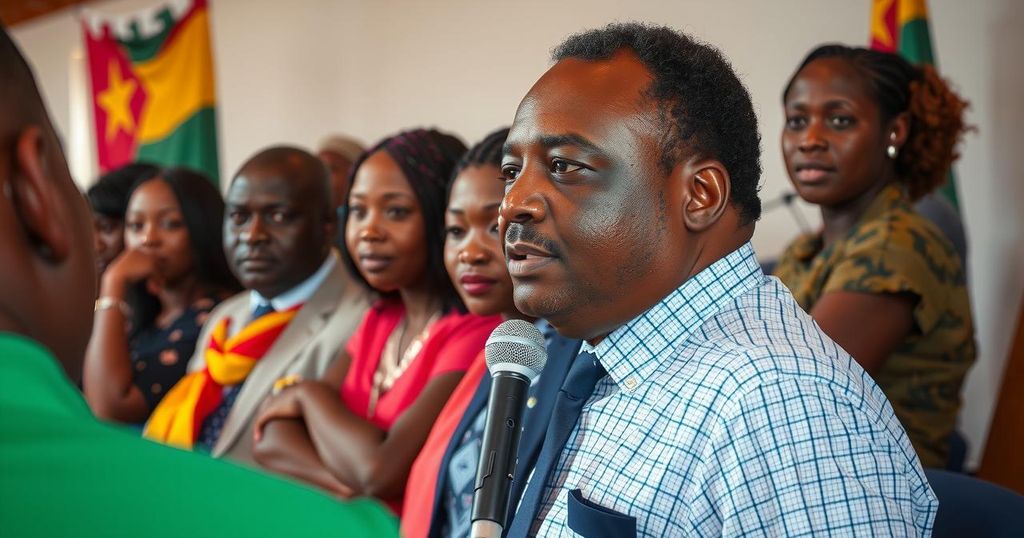Clashes erupted in Mozambique as opposition leader Venancio Mondlane returned from exile, with police employing tear gas and live ammunition against his supporters. The protests stem from allegations of election fraud following the October elections, leading to widespread unrest. Mondlane aims to initiate discussions on political reforms amid a turbulent backdrop of violence and discontent.
Mozambique experienced significant unrest upon the return of opposition leader Venancio Mondlane from self-imposed exile. Law enforcement responded to crowds of Mondlane’s supporters with tear gas and live ammunition as they attempted to greet him at Mavalane International Airport in Maputo. Protests escalated as demonstrators clashed with police, leading to multiple injuries among supporters frustrated by the authorities’ reaction. Mondlane previously accused the ruling Frelimo party of election fraud following the controversial October 9 elections.
Mondlane, who had withdrawn from public life due to threats following the elections, returned to Maputo amidst fears of an arrest. His party members had faced violence in the weeks following the election, which had already resulted in significant casualties. The situation was exacerbated by a decision from the Constitutional Council to validate disputed election results, prompting widespread demonstrations by his supporters who demand accountability and change after decades under Frelimo’s government. Following the unrest, the Mozambican government has criticized Mondlane for allegedly inciting violence, suggesting he may be liable for damages during the protests. Amidst a backdrop of turmoil, Mondlane’s return is viewed by many, particularly the youth, as a beacon of hope for political reform in Mozambique.
The political landscape in Mozambique is heavily influenced by the ruling Frelimo party, which has held power since the end of colonial rule in 1975. Recent elections have been marred by allegations of fraud, and violence has erupted following the constitutional court’s confirmation of the election results. This context sets the stage for Mondlane’s return from exile, which is seen both as a potential catalyst for change and a flashpoint for further discord in a politically fractured nation. The opposition has faced severe repression, creating an environment where government actions are monitored closely by both citizens and international observers.
The return of Venancio Mondlane has ignited tensions in Mozambique, highlighting the deep-seated divisions within the country’s political fabric. With violence erupting as law enforcement confronts protesters, it is evident that many citizens are disillusioned with the status quo and are yearning for change. As the situation unfolds, it remains to be seen how the government will address the grievances of its populace and whether Mondlane’s presence will effect any meaningful dialogue or reform.
Original Source: www.aljazeera.com






